9 Best Cumin Substitutes for Cooking
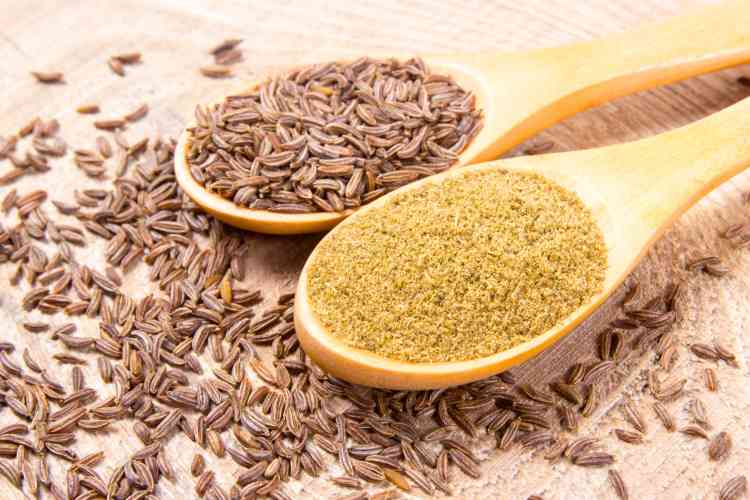
Are you in a pinch and looking for a cumin substitute? When you’ve run out of cumin in the middle of cooking, it can feel like a disaster, especially when it's a key ingredient in your recipe. So, what can you do when you're out of this distinctive spice? Is there a cumin substitute that can fill the void?
Yes, the good news is there’s more than one cumin substitute you can use. From spices that mimic cumin’s earthy, nutty flavor to bold alternatives that offer a new twist, there’s no shortage of swaps. If you’re wondering what to use as a cumin substitute, this guide is for you! Keep reading to discover the best cumin substitutes that can expertly avert your kitchen crisis.
Jump to Section
What Is Cumin Used for in Cooking?
Cumin is a staple spice in many global cuisines, known for its earthy, warm and slightly peppery flavor. It adds depth and complexity to a variety of dishes, from Indian curries and Middle Eastern stews to Mexican empanadas. It also often features in spice blends, perfectly complementing other spices.
In cooking, cumin can be used in whole seed form or ground into a fine powder. Whole cumin seeds are often toasted before being added to dishes, which brings out their natural oils and flavor. Ground cumin is more commonly used in marinades, rubs and spice mixes.
While cumin is an excellent spice to incorporate into your cooking repertoire, it's important to learn how best to use it and what ingredients to pair it with. To improve your knowledge of using this aromatic ingredient, consider taking some online cooking classes or finding cooking classes near you. Understanding cumin’s role in cooking can also help you choose the best cumin substitute for your dish without panicking in the pantry!
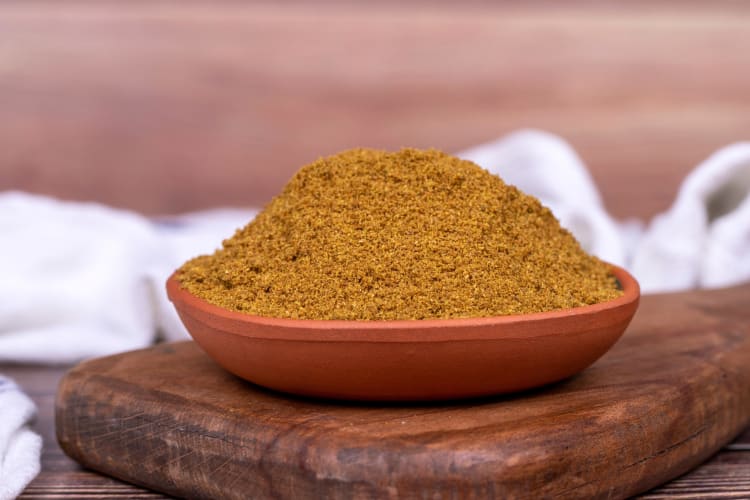
9 Best Substitutes for Cumin
1. Curry Powder
Curry powder is an excellent cumin substitute because it typically includes cumin along with other flavorful spices like turmeric and coriander. This makes it a versatile stand-in that not only replicates cumin’s earthy tones but also adds richness. It’s ideal for stews, soups, rice dishes and roasted vegetables, particularly in recipes inspired by Indian or Middle Eastern cuisines.
To swap curry powder for cumin, use a 1:1 ratio. Since curry powder is a blend of spices, it will slightly alter the dish’s flavor, so make sure you taste and adjust as needed for the perfect balance when using this substitute for cumin powder.

2. Ground Coriander
With its citrusy and nutty notes, ground coriander can be a handy cumin substitute to stock in the kitchen. Although equally as earthy as cumin, ground coriander also offers a fresh kick. It works particularly well in Indian curries, North African tagines and Latin American stews.
To substitute ground coriander for cumin, use it in a 1:1 ratio. This substitute for cumin powder maintains the earthy depth of cumin while introducing a slightly different yet harmonious flavor.
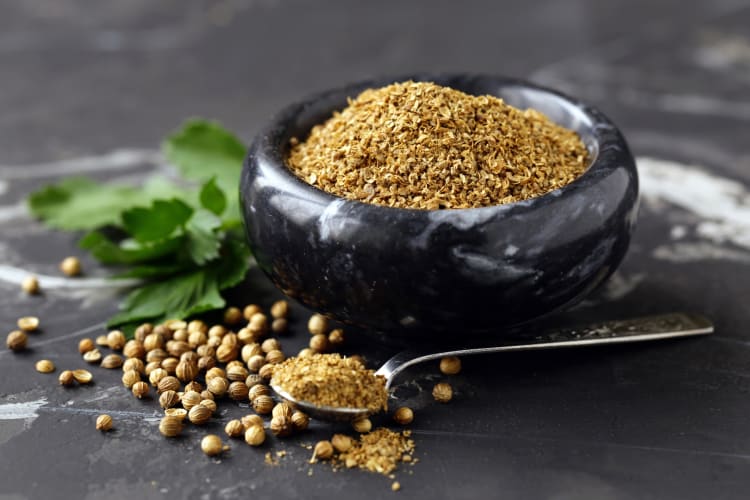
3. Caraway Seeds
If you’re looking for a spice alternative to cumin with an earthy, nutty flavor, plus a hint of citrus and sweetness, then choose caraway seeds. These flavorful seeds are excellent in stews and used in place of cumin seeds to sprinkle over breads.
When substituting caraway seeds for cumin, use a 1:1 ratio. Toasting the seeds lightly before adding them to your dish, just as you would with cumin seeds, can ramp up their flavor. This replacement for cumin works best in recipes where the slight anise-like notes of caraway can complement the other ingredients.
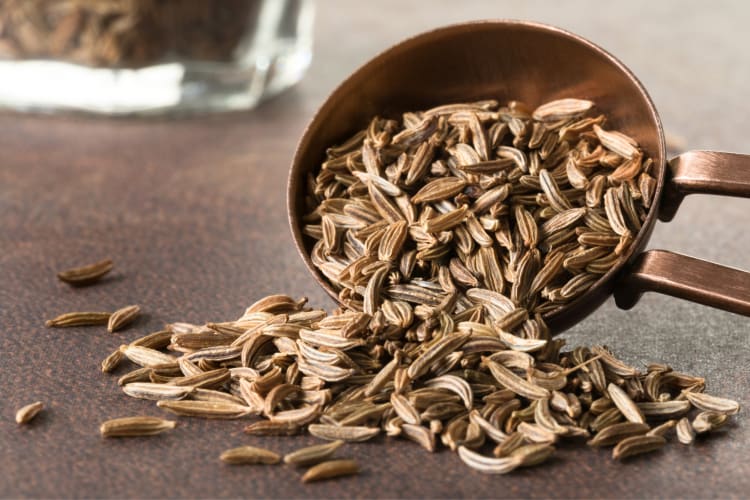
4. Chile Powder
Chile powder can easily step in as a cumin substitute because some forms contain cumin. Try this cumin replacement in dishes where you want a more piquant punch of flavor, such as chili, tacos and spicy sauces. Chile powder is also an interesting cumin substitute in rubs and marinades. For example, replacing cumin with chile powder in a blackened mahi mahi spice mix can add a unique spicy kick to the dish.
To use chile powder as a cumin substitute, replace it in equal amounts. Ideally, find a brand at the store that contains cumin instead of only ground chile. However, chile powder with no additional ingredients can work if needed. Do also be mindful that chile powder can introduce a bit more heat, so limit any other spicy ingredients if needed.
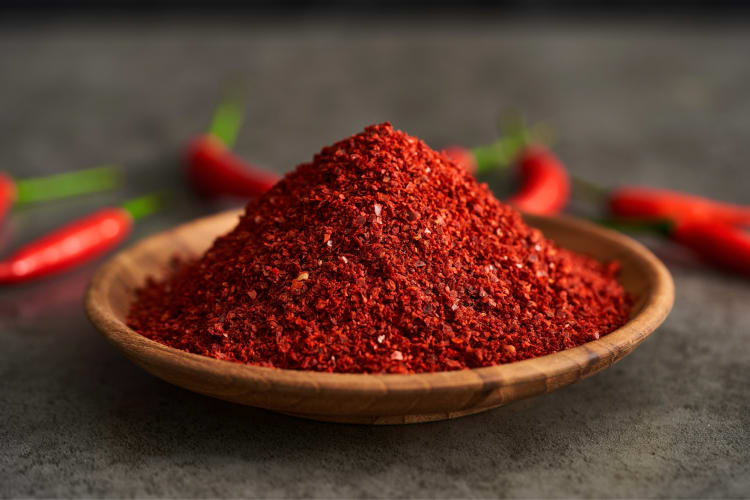
5. Taco Seasoning
Taco seasoning is another cumin substitute that contains cumin as a primary ingredient, blended with other spices and herbs, such as chile powder, paprika, garlic and oregano. The bold, savory flavor of taco seasoning is an excellent addition to Mexican and Tex-Mex dishes like tacos, burritos and enchiladas.
When you have no cumin to hand, add taco seasoning measure for measure in a 1:1 ratio. However, keep in mind that taco seasoning has additional spices. While these added ingredients make it ideal for dishes where a complex flavor is welcome, you may want to tone down the seasoning to avoid overpowering a simpler, lighter dish.

6. Garam Masala
Garam masala is an excellent cumin substitute as it traditionally includes cumin itself along with a list of spices, such as coriander, cinnamon and cardamom, to name a few. This aromatic mix imparts a similar warmth and depth to dishes as cumin, making it a straight swap in many recipes.
This spice is most frequently associated with Indian and Middle Eastern cuisine, serving up richness to curries, stews and rice dishes. It’s especially effective in recipes like vegan tikka masala where cumin’s earthy notes are essential but can be enhanced by the additional spices found in garam masala.
To use garam masala as a spice alternative to cumin, simply replace spoon for spoon the amount called for in the recipe. However, it’s a good idea to start with a small quantity and adjust to taste because garam masala’s deep flavor can be quite potent.

7. Paprika
Paprika’s mild, smoky or sweet flavor, depending on the variety, can be used as a cumin substitute in a range of dishes. While it’s true that the flavors do differ, paprika’s depth and vibrant color make it a worthwhile addition to most recipes where cumin is required.
For a hint of sweetness or smokiness, adding paprika as a cumin alternative can help to pick out specific flavor profiles in stews, soups and sauces. It can also work in dips that call for cumin, such as spicy hummus, adding a welcome smoky flavor.
To use paprika as a cumin substitute, simply replace cumin with an equal amount of paprika in your recipe. For a more robust, earthy flavor, go for smoked paprika.

8. Fennel Seeds
Often mistaken for cumin seeds, fennel seeds not only look like a cumin substitute but they can also be used as one. However, their flavor is not exactly the same. With a slightly sweet licorice-like taste, your dishes will take on this aromatic aniseed quality when using this cumin replacement.
Fennel seeds work particularly well in Mediterranean and Middle Eastern dishes, such as roasted vegetables, sausages and spice blends, where their distinctive taste can shine through. To use fennel seeds as a cumin substitute, lightly toast them to enhance their essential oils and deepen their flavor. Then, grind them into a powder to match the consistency of ground cumin.
Use a 1:1 ratio for the substitution, but just be careful of the sweetness fennel seeds can impart and adjust quantities according to taste. See this swap as a chance to experience a delightful variation, adding a fresh dimension to your culinary creations.

9. Nigella Seeds
Nigella seeds, also known as black cumin or kalonji, make a rich cumin substitute as they share a similar earthy and slightly bitter flavor. These seeds have a strong savory aroma with hints of onion and pepper. This cumin alternative can be added to dishes where warmth and depth are integral to the recipe.
Add nigella seeds to your dish in the same quantity you would use ground cumin. Prepare the seeds by toasting them lightly to release their natural oils. Nigella seeds work wonderfully ground up in spice blends and curries or even kept whole, added to roasted vegetables and salads, offering a savory crunch.

Finding the right cumin substitute can make a big difference in maintaining the flavor profile of your dish when you’re out of this essential spice. Whether you opt for ground coriander, chile powder or caraway seeds, each alternative brings a unique twist while still offering that warm, earthy taste cumin is known for. By experimenting with these substitutes, you can expertly enhance your cooking and never worry about running out of cumin again.
For even more ways to explore your favorite foods, check out other experiences happening on Cozymeal.
